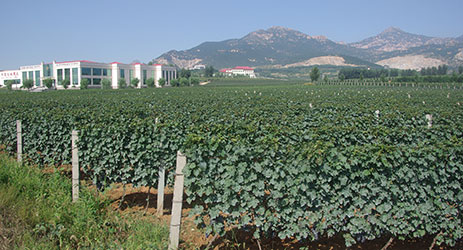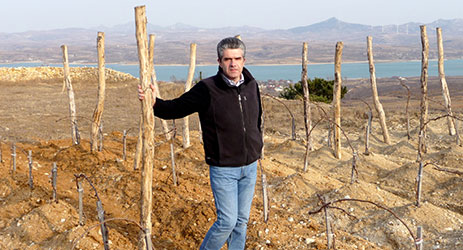

Longer shipment times risk hurting wine imports into China
Increasing shipment times could be putting significant financial strain on winemakers trying to import their wines into mainland China.

China's Changli wine region rebuilds after scandal
One of China’s oldest winemaking regions, Changli County in Hebei Province, is working to rebuild its reputation with billions of yuan in investment following accusations that some producers were making fake wines.

Shanghai wine imports suffer in first half of 2014
The average price of imported wines to Shanghai, a major gateway to the mainland China market, have continued to fall in the first half of 2014, according to customs figures.

'Cluster effect' crucial to a wine region's success, say researchers
Winemakers in lesser known regions need more than good terroir and money to emulate famous names like Bordeaux, Champagne and Rioja, argue researchers in a new book on the 'wine cluster effect'.

Chinese wine to get boost from global wine grape conference
Winemaking in China is set to benefit after the country this week welcomed many of the world’s top grapevine scientists for the 11th International Conference on Grapevine Breeding and Genetics, according to local academics.

China success ‘won’t happen overnight’, says Wines of Argentina
Argentina’s winemakers are hopeful of capitalising on greater economic co-operation between their country and China, but trade leaders believe it will take tame to build trust with consumers.

Lafite-Rothschild owner produces first ‘experimental’ wine in China
Chateau Lafite-Rothschild owner, Domaines Barons de Rothschild, has described its first Chinese vintage as ‘experimental’ and believes it is likely to take at least another three harvests to perfect a wine that it could sell on the domestic market.

China’s Fosun Group buys stake in Spanish wine and ham producer
Fosun Group has bought a 20% stake in Spanish wine and food producer Osborne Group, in order to secure more supplies for China’s growing ‘middle class’.

Bright Food denies plan to invest in Australian wine
Bright Food Group has denied a report that is it planning to invest in the Australian wine sector.

Chinese online retailer Wangjiu plants own vineyard
Chinese e-retailer Wangjiu is to start producing its own wine in the country, in an effort to expand its business beyond high-end imports.